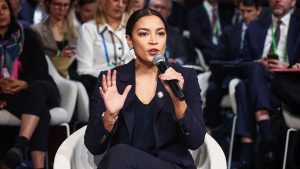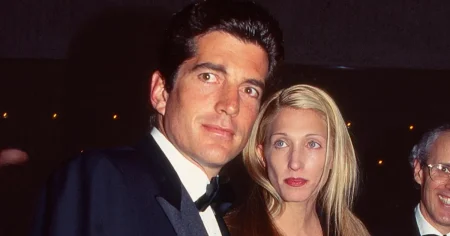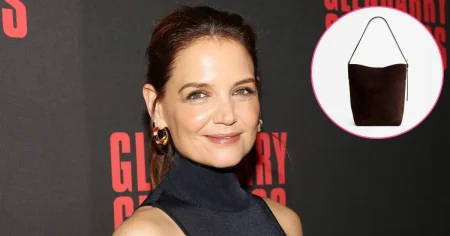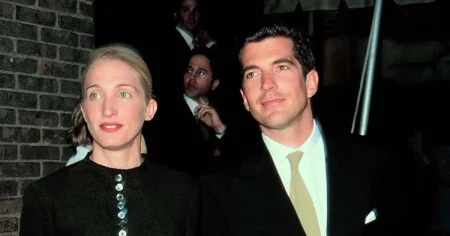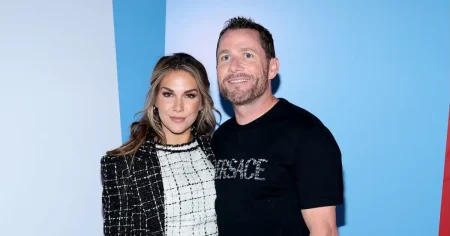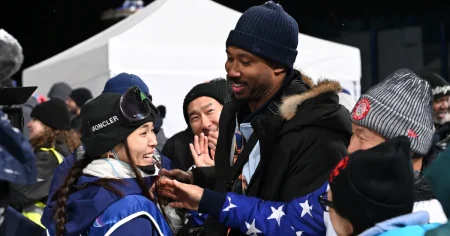Sydney Sweeney’s Response to American Eagle Campaign Controversy: A Closer Look
Sydney Sweeney recently addressed the unexpected backlash to her American Eagle denim campaign in a candid GQ cover story. The 28-year-old actress expressed surprise at the public’s reaction to what she viewed as a straightforward jean advertisement. “I did a jean ad. I mean, the reaction definitely was a surprise, but I love jeans. All I wear are jeans,” Sweeney explained. She maintained that she understood the campaign’s purpose was simply to promote “great jeans” and that the controversy didn’t affect her personally. The campaign, titled “Sydney Sweeney Knows Good Jeans,” sparked debate when some social media users interpreted the wordplay between “jeans” and “genes” as promoting eugenics—a connection Sweeney firmly denied. “I wasn’t thinking of it like that, of any of it,” she told the magazine, adding that her busy filming schedule for “Euphoria” meant she was largely unaware of the social media storm, as she typically keeps her phone away during 16-hour workdays. Her somewhat dismissive approach to addressing the controversy concluded with the statement, “I think that when I have an issue that I want to speak about, people will hear,” suggesting she didn’t consider this particular backlash worthy of a more detailed response.
The internet’s reaction to Sweeney’s explanation was deeply divided, highlighting how celebrity responses to controversies can sometimes fuel rather than extinguish public debate. Some supporters praised both Sweeney and American Eagle, calling it “the most successful marketing campaign in the modern era” and describing the actress as someone who “needs to be protected at all costs.” These fans appeared to appreciate her straightforward approach and refusal to engage with what they viewed as manufactured outrage. However, many others found her response disappointing and potentially tone-deaf. Critics questioned whether she genuinely didn’t consider the implications of the campaign’s messaging or was simply distancing herself from a marketing concept gone wrong. One social media user expressed doubt about Sweeney’s claimed detachment: “I can’t tell if she really just clocks in and out to pick up a check when it comes to work that’s not meaningful to her or not. With the amount of care she puts into her own projects, I would have a hard time believing that she wouldn’t even consider the optics of that commercial as a whole.” This sentiment reflected a broader disappointment among some fans who expected the actress to be more thoughtful about her professional choices and public messaging.
The controversy has sparked deeper conversations about celebrity responsibility, marketing tactics, and the political climate’s influence on public perception. Some observers contextualized the backlash within the current political environment, suggesting that “in any other time in history this ad would’ve been uncontroversial” and that it wasn’t Sweeney’s “fault her stardom is peaking under [President Donald Trump’s administration].” However, others were more critical of what they perceived as a pattern of non-accountability from the actress, with one user claiming “Sydney Sweeney already perfected that, ‘Oh, I was unaware of my actions’ usual non-accountability.” A particularly pointed criticism came from someone who felt Sweeney missed an easy opportunity to defuse the situation: “This is insane to me. All you had to do was laugh it off as stupid and say ‘Of course I don’t subscribe to genetic superiority of any kind.’ [The GQ reporter] was giving Sydney Sweeney an easy out and she just didn’t take it. That’s wild.” These varied reactions highlight how the public increasingly expects celebrities not just to promote products but to understand and take responsibility for the social implications of their endorsements.
While Sweeney largely avoided addressing the controversy directly, American Eagle stepped in to defend the campaign’s intentions with an official statement. “Sydney Sweeney Has Great Jeans’ is and always was about the jeans. Her jeans. Her story,” the brand clarified in August, adding, “We’ll continue to celebrate how everyone wears their AE jeans with confidence, their way. Great jeans look good on everyone.” This response aimed to redirect the conversation back to the product while emphasizing inclusivity—a marked contrast to the eugenics interpretation that had sparked the backlash. The brand’s statement represented a more direct approach to addressing the controversy than Sweeney’s personal comments, though both emphasized that the campaign was intended to be about denim rather than genetics. The divergent approaches to crisis management—Sweeney’s minimal engagement versus the brand’s clarifying statement—demonstrate the complex dynamics at play when marketing campaigns face unexpected public scrutiny and the different stakeholders involved try to navigate the fallout.
Sweeney has since maintained her stance of not engaging with the “denim drama,” particularly during promotional events for her film “Christy.” When asked about the controversy during the Toronto International Film Festival, she firmly redirected attention to her work: “I am there to support my movie and the people involved in making it, and I’m not there to talk about jeans. The movie’s about Christy [Martin], and that’s what I’ll be there to talk about.” This approach of compartmentalizing controversies and maintaining focus on current projects reflects a common celebrity strategy when facing unwanted questions about past incidents. By drawing a clear boundary around what she was willing to discuss, Sweeney attempted to control the narrative and keep the spotlight on her acting work rather than brand endorsements. This strategic silence raises questions about whether directly addressing controversies or choosing to move past them without extensive comment is more effective for celebrities in the long term.
The entire American Eagle campaign controversy illustrates the increasingly complex relationship between celebrity endorsements, public perception, and corporate marketing in the social media age. What began as a seemingly straightforward jeans advertisement evolved into a debate about language, social responsibility, and the obligations of public figures when their promotional work sparks unexpected controversy. Sweeney’s response—a mix of surprise, dismissal of the issue’s importance, and eventual refusal to engage—has itself become part of the story, demonstrating how celebrity reactions can sometimes extend rather than end public discussions. As brands continue to leverage star power to reach consumers, the Sweeney-American Eagle incident serves as a case study in how quickly marketing messages can be interpreted in unintended ways and how challenging it can be for all parties involved to find the right balance between addressing concerns and moving forward. In an era of heightened sensitivity to language and social issues, the incident highlights the thin line celebrities and brands walk between creating attention-grabbing campaigns and avoiding unwanted controversy.

